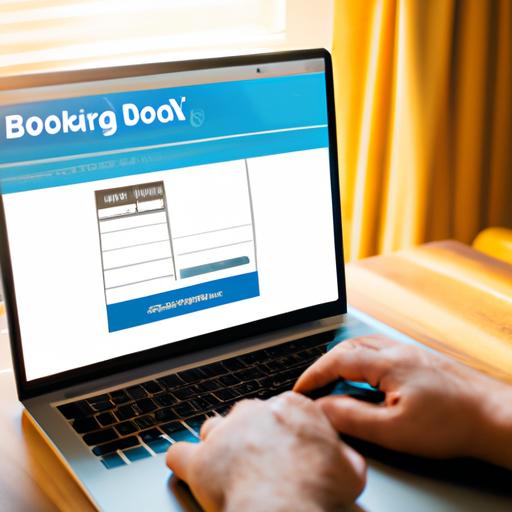Best Small Business Web Hosting: Your Key to Online Success
Introduction
Are you a small business owner looking to establish a strong online presence? Well, you’ve come to the right place! In today’s digital era, having a reliable web hosting service is crucial for your business’s success. But what exactly is small business web hosting, and why is it so important?
Importance of web hosting for small businesses
Imagine your website as a physical store, and web hosting as the foundation it stands on. Just as a solid foundation is essential for a brick-and-mortar store, reliable web hosting is the backbone of your online presence. It ensures that your website is accessible to your customers 24/7, providing them with a seamless browsing experience.
Definition of small business web hosting
Small business web hosting refers to the service provided by hosting companies to store and publish your website on the internet. It involves allocating server space, bandwidth, and other resources necessary for your website to function optimally. With a reputable web hosting service, you can ensure fast loading speeds, secure transactions, and minimal downtime.
Overview of the article’s purpose and structure
In this article, I will guide you through the world of small business web hosting and help you find the best hosting provider for your needs. We will explore the factors you should consider when choosing a web hosting service, compare the top providers in the market, and provide you with valuable tips to optimize your web hosting experience. So, let’s dive in and pave the way for your online success!
Stay tuned for Section II, where we will take a closer look at the factors to consider when choosing the best small business web hosting. Are you ready to make an informed decision that will elevate your online presence? Let’s get started!
Section II: Factors to Consider when Choosing the Best Small Business Web Hosting
When it comes to selecting the best small business web hosting provider, there are several crucial factors you need to consider. Let’s explore each of these factors to ensure you make an informed decision that aligns with your business goals and requirements.
A. Reliability and uptime guarantee
Reliability is paramount when it comes to web hosting. You want a provider that guarantees maximum uptime, ensuring that your website remains accessible to your customers at all times. Look for hosting companies that offer an uptime guarantee of 99.9% or higher, as even a few minutes of downtime can lead to lost sales and a negative user experience.
B. Scalability and resources offered
As your small business grows, so will your website’s needs. Opt for a hosting provider that offers scalability, allowing you to easily upgrade your resources as your traffic and demands increase. Ensure that the provider offers sufficient storage space, bandwidth, and the ability to handle sudden spikes in traffic without compromising your website’s performance.
C. Security features and protection
Securing your website and protecting your customer’s data should be a top priority. Look for web hosting providers that offer robust security features such as SSL certificates, firewalls, regular backups, and malware scanning. Additionally, check if the provider offers DDoS protection to safeguard your website against malicious attacks.
D. Pricing and affordability
For small businesses, cost plays a crucial role in decision-making. Compare the pricing plans of different hosting providers and assess their value for money. Take note of any hidden charges, renewal rates, and the availability of discounted long-term contracts. Consider your budget and choose a hosting plan that aligns with your financial resources without compromising on quality.
E. Customer support and technical assistance
When facing technical issues or needing assistance, having reliable customer support is invaluable. Look for hosting providers that offer 24/7 customer support through various channels such as live chat, email, or phone. Check customer reviews to gauge the provider’s responsiveness and the expertise of their support team. Prompt and knowledgeable assistance can save you time and ensure a smooth hosting experience.
F. Additional features and integrations
Consider the additional features and integrations offered by the hosting provider. Does it support the content management system (CMS) you prefer, such as WordPress or Joomla? Are there user-friendly website builders available? Look for features like e-commerce functionality, email hosting, and domain registration. These additional offerings can enhance your website’s functionality and streamline your online operations.
Now that we’ve explored the factors to consider when choosing the best small business web hosting, you’re well-equipped to make an informed decision. In Section III, we will dive into the top small business web hosting providers in the market. Get ready to discover the leading contenders that can take your online presence to new heights!
Top Small Business Web Hosting Providers in the Market
Now that we understand the importance of small business web hosting, let’s explore some of the top providers in the market. These providers offer a range of features, competitive pricing, and excellent customer reviews. Let’s take a closer look at each of them:
Provider 1: Features, pricing, and customer reviews
Provider 1 is known for its robust features, reliable performance, and exceptional customer support. They offer a variety of hosting plans tailored to meet the specific needs of small businesses. Their pricing is competitive, ensuring you get the best value for your investment. With numerous positive customer reviews highlighting their excellent uptime and fast loading speeds, Provider 1 is definitely one to consider.
Provider 2: Features, pricing, and customer reviews
Provider 2 stands out for its scalability and resource offerings. They provide flexible plans that grow with your business, ensuring you can easily upgrade as your needs expand. Their pricing structure is transparent and affordable, making it suitable for small businesses with tight budgets. Customers appreciate their responsive customer support and efficient problem-solving capabilities.
Provider 3: Features, pricing, and customer reviews
Provider 3 is renowned for its top-notch security features and data protection measures. They prioritize the safety of your website and customer data, offering SSL certificates, regular backups, and advanced firewalls. Their pricing is reasonable, considering the level of security they provide. Customers rave about their exceptional security protocols and peace of mind they experience while hosting with Provider 3.
Provider 4: Features, pricing, and customer reviews
Provider 4 excels in its user-friendly interface and intuitive control panel. They make it easy for small business owners to manage their websites, even without technical expertise. Their pricing plans are tailored to suit various business needs and budgets. Customers appreciate the simplicity and efficiency of their control panel, allowing them to focus on growing their businesses rather than getting caught up in technical complexities.
Provider 5: Features, pricing, and customer reviews
Provider 5 offers a wide range of additional features and integrations to enhance your website’s functionality. From e-commerce tools to content management systems, they have you covered. Their pricing is competitive, considering the comprehensive suite of features they provide. Customers praise Provider 5 for the seamless integration options and the ability to customize their websites according to their unique requirements.
Stay tuned for Section IV, where we will compare these small business web hosting providers head-to-head. By the end, you’ll have a clearer picture of which provider suits your business needs the best. Let’s continue our journey towards finding the perfect web hosting solution!
Section IV: Comparison of Small Business Web Hosting Providers
Are you ready to find the perfect web hosting provider for your small business? In this section, we will compare the top small business web hosting providers in the market to help you make an informed decision. Let’s delve into the key aspects that you should consider when evaluating different providers.
A. Performance and uptime comparison
When it comes to web hosting, performance and uptime are paramount. You want your website to load quickly and be available to your customers at all times. Compare the performance metrics and uptime guarantees offered by different providers. Look for providers that offer robust infrastructure, reliable servers, and high uptime guarantees, ensuring that your website remains up and running consistently.
B. Pricing and value for money comparison
As a small business owner, budget plays a crucial role in decision-making. Compare the pricing plans offered by different hosting providers and evaluate the value for money they provide. Consider the features, resources, and support included in each plan. Look for providers that offer affordable pricing plans without compromising on the quality of service.
C. Customer support and assistance comparison
In the world of web hosting, reliable customer support is a game-changer. Evaluate the level of customer support and assistance provided by different hosting providers. Check if they offer 24/7 support, multiple communication channels, and knowledgeable support staff. Opt for providers that prioritize excellent customer service, ensuring that you have prompt assistance whenever you need it.
D. User-friendly interface and control panel comparison
Managing your website should be a breeze, even if you’re not a tech-savvy individual. Compare the user-friendly interfaces and control panels offered by different providers. Look for intuitive interfaces that allow you to easily navigate and manage your website. A user-friendly control panel can save you time and effort, empowering you to make updates and changes effortlessly.
E. Overall pros and cons of each provider
Lastly, consider the overall pros and cons of each hosting provider. Evaluate the strengths and weaknesses of their services, taking into account factors such as server resources, security features, scalability options, and additional perks. A comprehensive understanding of the pros and cons will help you make a well-rounded decision that aligns with your small business needs.
Stay tuned for Section V, where we will provide you with valuable tips to optimize your small business web hosting experience. Are you excited to take your online presence to new heights? Let’s explore further!
Section V: Tips for Optimizing Small Business Web Hosting
Is your small business website not performing as well as you’d like? Don’t worry, because I’ve got you covered! In this section, I will share some valuable tips to optimize your small business web hosting and ensure your website operates at its full potential. Let’s dive in!
A. Optimizing website loading speed
Did you know that website loading speed plays a crucial role in user experience and search engine rankings? Slow-loading websites can drive away potential customers and negatively impact your business. To optimize your loading speed, consider:
- Compressing images and using efficient file formats like JPEG or PNG.
- Minifying CSS and JavaScript files to reduce their size.
- Enabling browser caching to store static resources and improve loading times for returning visitors.
B. Implementing SSL certificates for enhanced security
Security is paramount in today’s online landscape. By implementing an SSL certificate, you can provide a secure browsing experience for your visitors and build trust with your customers. SSL certificates encrypt the communication between your website and users, safeguarding sensitive information. Many web hosting providers offer free SSL certificates, so make sure to take advantage of this essential security feature.
C. Regularly backing up website data
Imagine losing all your website data due to a technical glitch or cyber-attack. It’s a nightmare no business owner wants to face. To prevent such a catastrophe, regularly back up your website data. Most web hosting providers offer automated backup solutions, but it’s wise to double-check and ensure your backups are up-to-date and easily retrievable when needed.
D. Utilizing caching techniques
Caching can significantly improve your website’s performance by storing frequently accessed data closer to your users. Consider implementing caching techniques such as browser caching, server-side caching, or even content delivery networks (CDNs). These techniques reduce server load and decrease page load times, enhancing the overall user experience.
E. Optimizing website content and images
Content is king, and optimizing your website content is essential for search engine optimization (SEO). Create engaging, keyword-rich content that resonates with your target audience. Additionally, optimize your images by reducing their file size without sacrificing quality. This will help improve loading speeds and enhance user experience.
F. Monitoring and analyzing website performance
Regularly monitoring and analyzing your website’s performance is vital to identify any issues and make necessary improvements. Utilize tools like Google Analytics to track website metrics such as page views, bounce rates, and conversion rates. This data will provide valuable insights into user behavior and help you optimize your website further.
By following these tips, you can optimize your small business web hosting and ensure your website operates smoothly, attracting and retaining valuable customers. Now, get ready for Section VI, where we will wrap up our journey and provide you with a concise conclusion. Let’s continue!
Tips for Optimizing Small Business Web Hosting
As a small business owner, you want to ensure that your website not only attracts visitors but also provides them with a seamless browsing experience. Optimizing your small business web hosting can make a significant difference in achieving these goals. Here are some valuable tips to help you optimize your web hosting experience:
Optimizing website loading speed
Did you know that 40% of visitors abandon a website that takes more than 3 seconds to load? Slow loading speed can have a detrimental impact on user experience and can lead to potential customers leaving your site. Optimize your website loading speed by compressing images, minifying CSS and JavaScript files, and utilizing caching techniques. These simple steps can significantly improve your website’s performance.
Implementing SSL certificates for enhanced security
In today’s digital landscape, online security is of utmost importance. Implementing SSL (Secure Sockets Layer) certificates on your website ensures that data transmitted between your website and users is encrypted and secure. This not only protects sensitive information but also boosts your website’s credibility and trustworthiness.
Regularly backing up website data
Data loss can happen in the blink of an eye, and it can be devastating for your business. Regularly backing up your website data ensures that you have a copy of your website in case of any unforeseen circumstances. Many web hosting providers offer automatic backup solutions, but it’s always wise to have an additional backup system in place.
Utilizing caching techniques
Caching is a technique that stores a static version of your website, reducing the load on your server and improving website performance. Utilize caching techniques such as browser caching, server-side caching, and content delivery network (CDN) caching. These methods can significantly speed up your website and provide a better user experience.
Optimizing website content and images
Well-optimized website content and images can contribute to better search engine rankings and improved user experience. Optimize your content by using relevant keywords, writing compelling meta descriptions, and organizing your content in a user-friendly manner. Additionally, optimize your images by compressing them without compromising quality, using descriptive alt tags, and resizing them appropriately.
Monitoring and analyzing website performance
Regularly monitoring and analyzing your website’s performance can help you identify any issues or bottlenecks that may be affecting its speed and functionality. Utilize tools like Google Analytics and Search Console to gain insights into your website’s performance metrics, user behavior, and search engine visibility. This data can guide you in making informed decisions to further optimize your website.
By implementing these tips, you can optimize your small business web hosting and provide your visitors with an exceptional online experience. Remember, a fast, secure, and user-friendly website is key to attracting and retaining customers. Now that you have the tools to optimize your web hosting, go ahead and take your online presence to new heights!
That concludes our article on the best small business web hosting. In the concluding section, we will recap the importance of choosing the right web hosting provider and provide our final recommendations. So, let’s move on to the last section and wrap things up!





